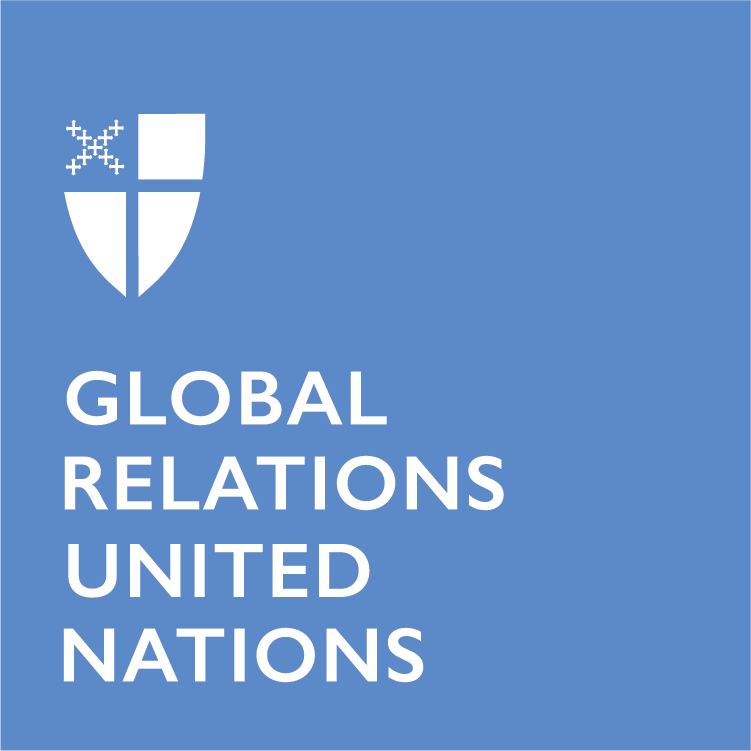During the recent United Nations Commission on the Status of Women’s 62nd session (CSW62), our Church was present through the voices of many Episcopalians. Our blog series “Her Story: #CSW62” features the individual voices and stories of these Episcopalians, in their own words. In doing so, we not only amplify our own voices, but join up with those in our wider ecumenical family through Ecumenical Women, a coalition of faith-based Christian organizations who feature the same theme. Follow our stories via the Episcopal Church and the UN blog, Facebook and Twitter platforms and hashtags #EpiscopalCSW and #EpiscopalUN. Interested in guest blogging? Contact us at Lynnaia Main.
Today we feature guest blogger Maria Gonzalez from the Diocese of Olympia, a delegate with the Presiding Bishop’s delegation of The Episcopal Church:
My name is Maria Gonzalez. I am sixteen years old and a junior at Charles Wright Academy. My favorite subjects are Spanish, Civics, and Biology, but the most important characteristics that define who I am are my ethnicity and my religion. I am a Mexican-American, Episcopalian female. My father initially immigrated to the United States from Merída, Yucatan, México when he was seven years old. At that time he was Catholic, but he and my mother were both received into The Episcopal Church while they were attending graduate school in Boston. They took it upon themselves to raise me and my two older siblings in the loving and gracious community that is St. Mary’s, but as I grew up, I noticed that the world around me did not reflect the values of love, respect, and compassion that I had learned in church. Instead, especially as I entered high school, I noticed that my community, and our nation in particular, was growing (and unfortunately continues to grow) increasingly sexist and xenophobic. As a female and daughter of an immigrant, this was incredibly painful for me to witness. Since I didn’t understand why this was occuring, I was determined to educate myself. To begin, I participated in the “SSJE” (Southern Social Justice Experience) trip with my diocese. Afterwards, I conducted a research project in which I traveled to Mexico and California in order to study ‘The American Dream.’ While I was conducting my research, I discovered that migrants leave their country for many different reasons; one of the most prominent factors is the opportunity for females to receive education.
Disparity in education is often a result of gender inequality. The right to an education is a fundamental right of every human being, yet many girls in rural areas are unable to attend school. This is often due to cultural traditions and societal norms that proclaim women as fragile, intellectually inferior, and better suited for motherhood and caregiving. However, there are also many other reasons as to why girls in rural areas do not attend school. Sometimes, it is due to inadequate transportation or insufficient funds. In other cases, girls suffer sexual harassment and sexual abuse either at school or en route to school, understandably making them less inclined to return. But due to a lack of education, women are less likely to get hired, condemning them to a life of financial dependence. They are far more likely to be illiterate, making them less likely to learn digital skills that are necessary in a world that is becoming increasingly technological. Women also become less likely to know their rights, making it more likely for them to be exploited and suffer gender based violence, included but not limited to human trafficking, intimate partner violence, physical assault, psychological abuse, harassment, bullying, and the use of denigrating language. No human should be treated this way.
As Episcopalians, we are called to love our neighbors, strive for justice and peace, and respect the dignity of every human being. Although not everyone believes in the same God, or any god for that matter, what I have heard at the 62nd Session of the United Nations Commission on the Status of Women gives me hope that both governments and members of civil society are doing their best to answer this call. Member states are having conversations about the importance of receiving a quality education, and they are recognizing the intersectionality of women’s issues. Women are sharing their stories about the injustices they have suffered, and people are listening. As many women have said so far, this UNCSW will be the “tipping point” in the fight for gender equality. We still have a long way to go, but I have absolute faith in humanity. Thanks to advocates and activists like those here at UNCSW, we are moving towards a world in which all people will be equal.
